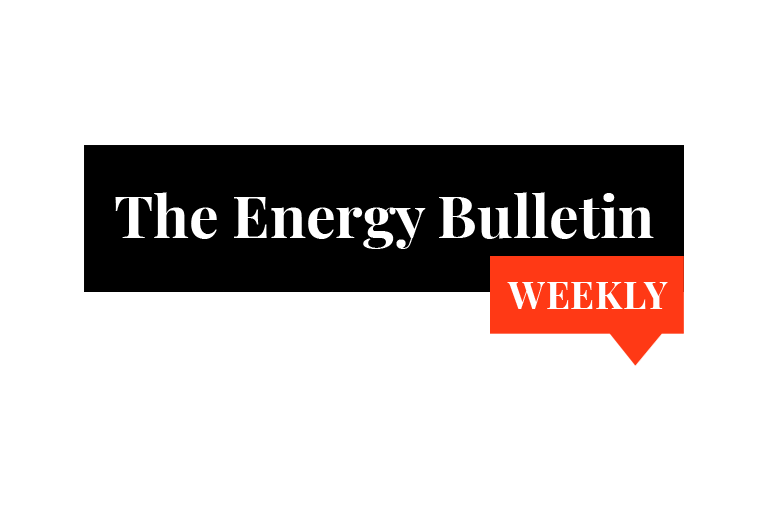Tom Whipple and Steve Andrews, Editors
Quotes of the Week
“Fears that Russian crude would be shut out of the market by sanctions and leave the world starved for oil have helped lift prices. Expectations for demand to decline amid deteriorating economic conditions have pulled them lower. Lately, demand concerns have been winning the tug of war.”
Ryan Dezember and Anna Hirtenstein, Wall Street Journal
G7 finance ministers agreed on Sept. 2 to impose a price cap on Russian oil aimed at slashing the country’s revenue while avoiding price spikes, but Russia said it would stop selling oil to countries implementing the policy… Western-dominated maritime transport, including insurance and financial services, would be permitted only if the purchase price of Russian oil cargoes is at or below a price level “determined by a broad coalition of countries adhering to and implementing the price cap.”…”Today we confirm our joint political intention to finalize and implement a comprehensive prohibition of services which enable maritime transportation of Russian-origin crude oil and petroleum products globally.”-G7 ministers, in the Oil & Gas Journal
“To cope with [Europe’s natural gas] crisis situation, demand reduction will be even more important than storage.”-Simone Tagliapietra, Bruegel think-tank, from Reuters
Stats of the Week
The U.S. average price for regular unleaded gasoline has fallen for 11 consecutive weeks to $3.81 a gallon, according to GasBuddy data. That is nearing the 12-week-long losing streak during the pandemic restrictions in spring of 2020. Prices have lost 24% from a record of $5 in mid-June, with motorists rethinking trips and growth slowing in the U.S. and China.-WSJ
If Freeport LNG had kept liquefying 2 billion cubic feet a day of natural gas at full capacity through the summer, the latest storage gap relative to the five-year average [of natural gas in storage] would be 16% instead of 11%.-WSJ
The benchmark price for drill pipe has surged to a record $4,150 per short ton, a 90% increase from $2,300 a year ago. The bounce may not be as high as some others in the oil industry, but it matters more because of the spillover effect: rising drill-pipe prices mean American shale drillers are increasing production more slowly than expected, and that, in turn, means higher oil prices worldwide-Bloomberg
From a peak of 8,807 in mid-2020, the number of drilled-but-uncompleted wells has fallen to an eight-year low of 4,277.-Bloomberg
Graphic of the Week

“Energy per capita and, in fact, resources per capita, must stay high enough for an economy’s growing population. When this does not happen, history shows that civilizations tend to collapse. Politicians cannot possibly admit that today’s world economy is headed for collapse, in a way similar to that of prior civilizations. Instead, they need to provide the illusion that they are in charge. The self-organizing system somehow leads politicians to put forward reasons why the changes ahead might be desirable (to avert climate change), or at least temporary (because of sanctions against Russia).”
Gail Tverberg, writer and speaker about energy issues
Headlines for the week of Aug 29 – Sep 4
The Global Energy Situation
The world’s energy problem is far worse than we’re being told
Russia
Russia delays reopening of Nord Stream in blow to gas-starved Europe
EU slams Nord Stream gas link closure as Gazprom doubles down on cause
Russia curbs gas supply to France’s Engie as squeeze worsens
Russia gives power burn a whole new meaning
IEA: Russian oil output still exceeding expectations
Shell walks away from major Russian LNG project with nothing
Europe
Europe braces for rationing risks
Europe plan for floating gas terminals raises climate fears
Analysis: Full gas storage no fix for Europe’s winter energy crunch
German-Danish Baltic wind hub to offset Russian gas
Europe rushing to install new LNG import facilities
France prepares $100 a month electric-car leasing plan
Shell CEO: Europe’s gas crisis could continue for multiple winters
EDF’s reactor restarts for winter will be monitored: minister
North America
Crude in U.S. emergency reserve falls to lowest since Dec. 1984
Canada sees west coast LNG revival as world scrambles for gas
U.S. diesel prices are back above $5
National average continues to decline as economic concerns push oil prices lower
California issues flex alert for Friday
U.S. rig count slips amid retreat in crude prices
Middle East/NA
Attacks on major Iraqi gas field drive out U.S. contractors
Iran is ready to release millions of barrels of oil into the market
Iran to raise oil output to over 4 million Bpd by March 2023
Violent clashes in Libya reignite fears of civil war
Iran nuclear deal “moving backward” after Tehran’s negative response
China
China is quietly reselling its excess Russian LNG to Europe
The Global Economy
Holiday season airfares soar on pricey fuel and revenge travel
US
Nuclear fusion’s inclusion in the Inflation Act is a huge win for emerging tech
Europe
Latest threat to the UK’s economy is its crumbling currency
China
China’s biggest developer says property crisis has yet to bottom
China’s largest developer posts record 96% profit slump
China is battling its broadest Covid outbreak yet
New COVID-19 cases look to weaken China’s oil demand recovery in Sep
China’s steel industry is in crisis
China arrests hundreds in nation’s biggest-ever bank fraud probe
Middle East/NA
Civil unrest raises risks for oil sector
Exclusive: Iran steps up underground uranium enrichment, IAEA report says
Africa
95% of production at Nigeria’s main oil hub is being stolen
Global Warming
Asia
Melting Himalayan glaciers are making Pakistan’s floods worse






